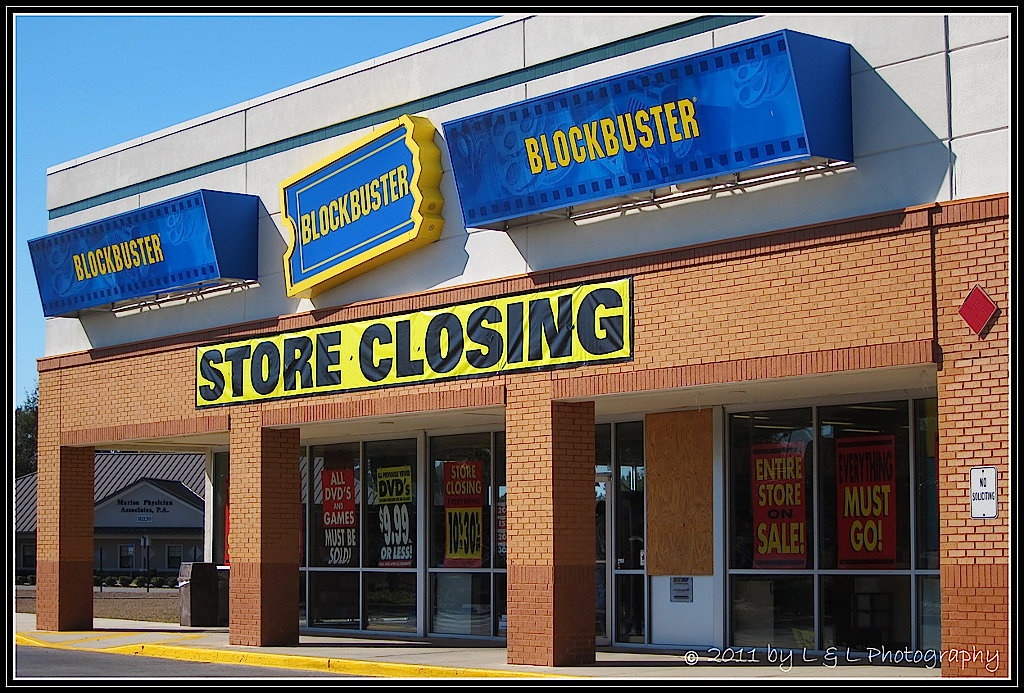Friday TechMunch: Greed and Gullibility - Consumers, Blockbuster and Familiar Mistakes
Look at the business pages of any major newspaper and you’ll notice that some of the most exciting and fast-growth companies in the world right now are those disrupting the service sector. Hailo, JustEat, Netflix, Uber, AirBnB – they’re carving out enormous market share across the hospitality, travel, entertainment and transportation sectors at a speed unlike anything we’ve seen before.
The reason for their success? They beat the competition to the punch with technology.
Consider the demise of companies like Blockbuster compared to the rise of Netflix. It was a global business with huge revenues that was ingrained in Western culture for decades, and yet within the space of five years it all but disappeared, whereas Netflix – which has not a single physical store – had 1.5 million new signups in the UK alone in 2014 and is now used by 1 in 10 British households.

In a similar story, the highly successful AirBnB – which owns no hotels – is currently subject to scrutiny in major cities like Los Angeles, Sydney and New York, the regulators of which say the site and its users have impacted the price of rent. The very idea of a single website impacting the housing markets of multiple major cities around the world still seems unbelievable, and while there’s seems to be some justification there, it has done little to stop people embracing the concept. The top 10 cities on Airbnb all have at least 10,000 listings, with Paris topping the list with more than 46,000 rooms for rent in the French capital. The wider impact of this has many factors – 46,000 fewer rooms for permanent residents would pose a real housing challenge, and tens of thousands of vacancies in hotels across a capitol city would hurt the profitability of traditional accommodation businesses. It’s difficult to say what will happen next, but the solution will need to address problems across both sectors and the traditional hotel and travel bookers will need to think long and hard about what can be done to compete with Airbnb’s pace of innovation.
HBO is another iconic brand that could one day become victim to Blockbuster’s mistakes of not innovating quickly enough. Their chief executive was recently asked his thoughts on Game of Thrones (unavailable to stream by subscription anywhere but the US) being the most illegally pirated show on the planet, with 1.5 million downloads of the first episode of the latest season – breaking all current records. Rather than expressing frustration at the loss of all that potential profit, he considered it a natural loss given the sophistication of online piracy and lack of availability of the show by subscription in international markets. Ultimately, he said, piracy had served to raise the profile of HBO and had no negative impact on the bottom line. While that could indeed be true, the decision by consumers to go elsewhere when their need for content wasn’t being met may hurt them in the long term.
A bit like Veruca Salt from the 1970’s version of Charlie and the Chocolate Factory, what all of these examples tell us is that consumers want their services smooth and they want them now. Without a thought of brand loyalty and legacy, they will choose whichever company or competitor that gives them what they want with the most ease and immediacy. In the real world, there are no punishments at the end of our musical numbers for being greedy, just technology companies that crack the formula for a service before everyone else, and then promptly gobble up market share.
Veruca Salts of the world rejoice.
Find Out More
-
Platinum CMS Award
March 13, 2024
-
Changing Communications Tack at Mobile World Congress
February 21, 2024


